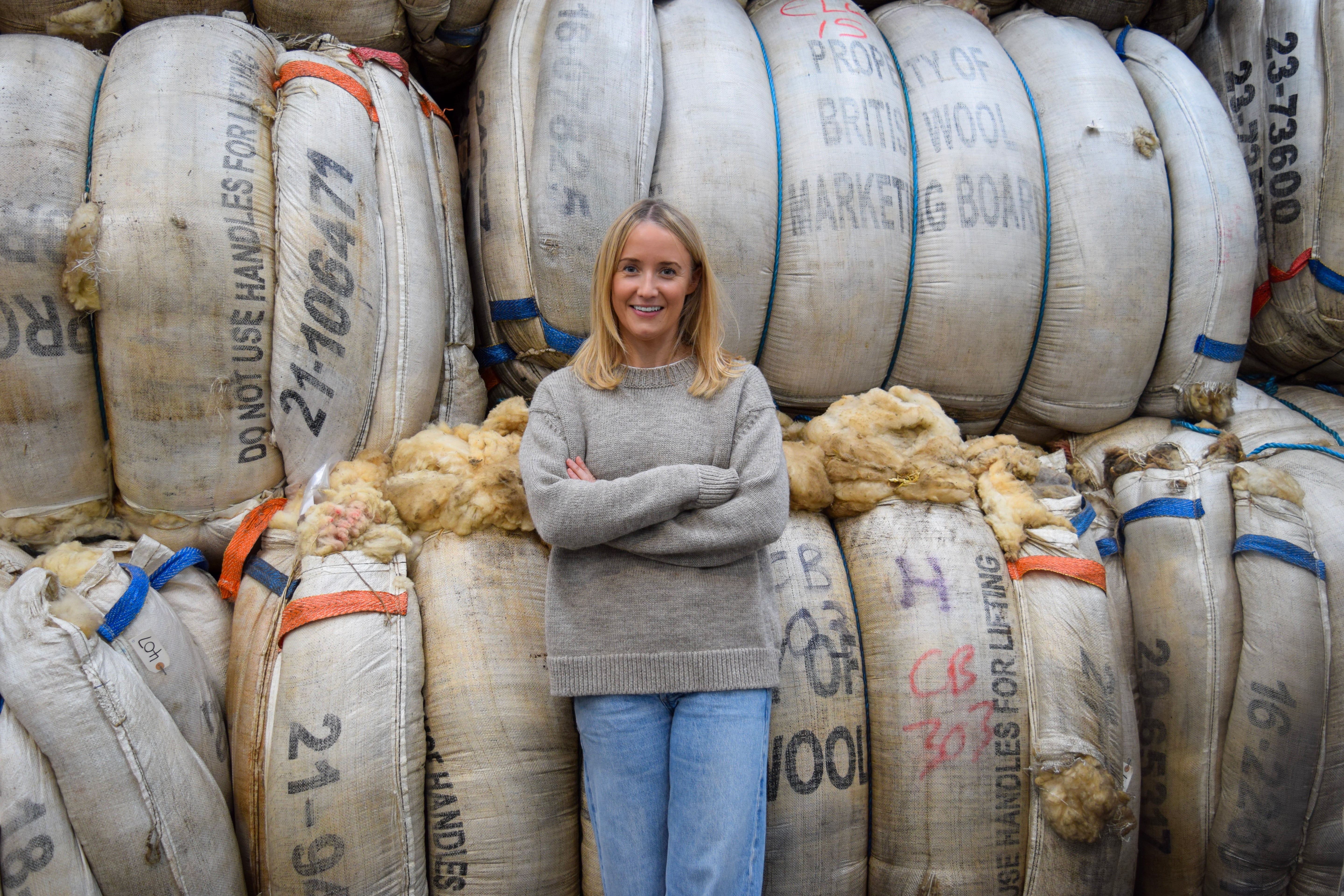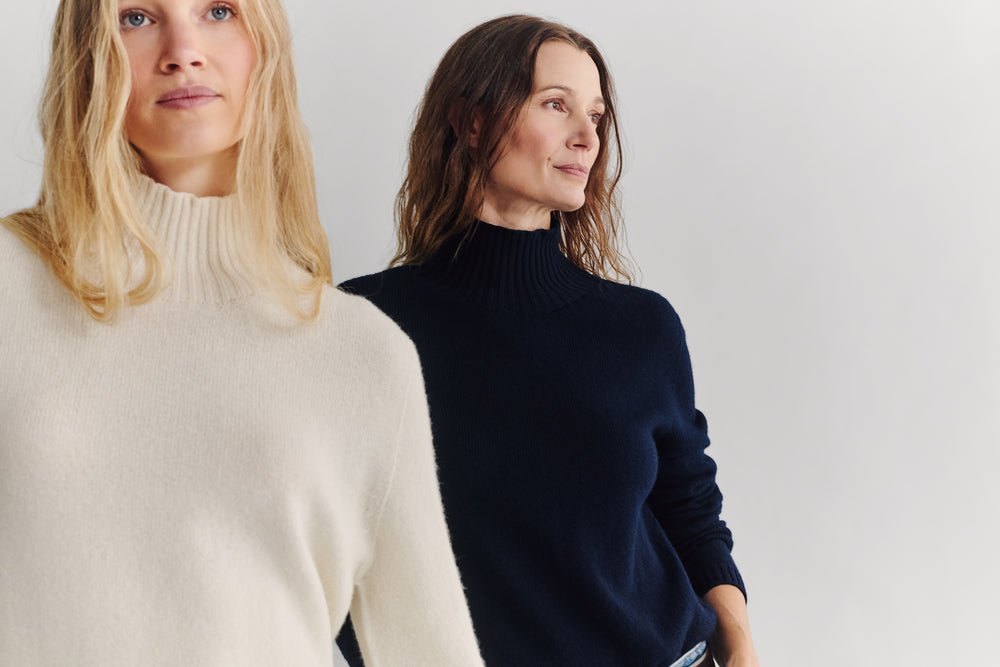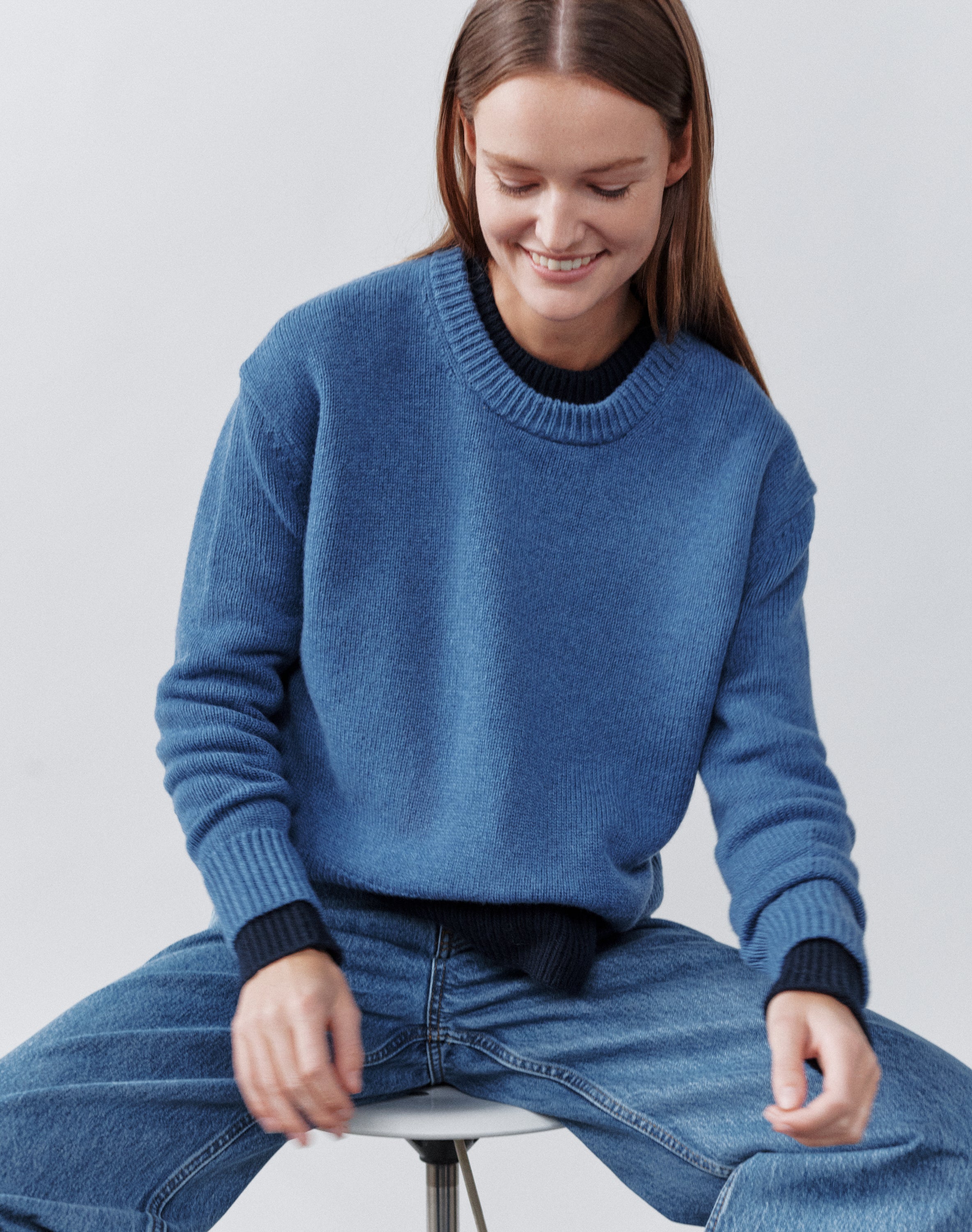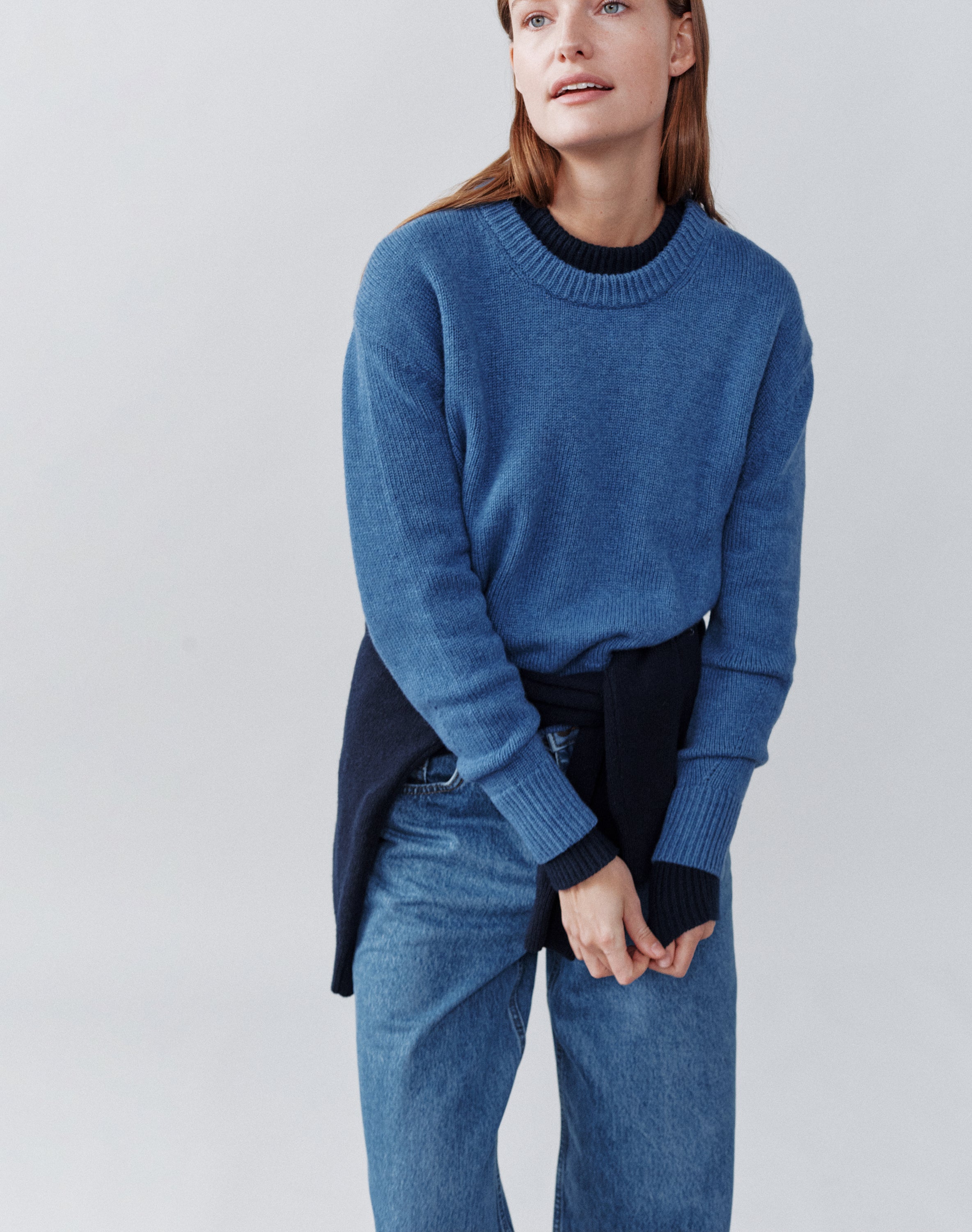We work with a wonderful Mill based in the Biella region of Italy. Called Lanecardate, the Mill has been operating in the wool business for over 350 years - since 1663.
When we started on our Navygrey journey, we knew we could only partner with suppliers and manufacturers who share our focus on quality, sustainability and transparency. As soon as we met the Lancardate team and saw their Mill in action, we knew they would be an excellent fit to help us bring Navygrey to life.
Full traceability from sheep to sweater
Working directly with their CEO Massimo and Director Chiara and in partnership with the SustainaWOOL Integrity Scheme, we have been able to create a fully traceable, supply chain from from sheep to sweater.
Knowing the origin of our raw materials is crucial to us, but today, guaranteeing the traceability of natural fibres in this way is not a given. The complexity of working with different flocks, farms and locations - in a huge global industry - means that unless you have expert people on the ground willing to oversee the whole process, it is very hard to do.
This traceability part was of the utmost importance to us - and the passion and dedication of the Lanecardate team and partners is what has enabled us to make this happen.
Requiring full traceability means it takes us longer to produce our knitwear than other retailers and currently, it also incurs more costs as it is a labour/paperwork intensive process as we must document every single lot of wool purchased - so we can ensure that line of transparency.
But for us, this part was always going to be non-negotiable. Merely stating that our wool is Italian-spun was never going to be enough. We want to know exactly from where our wool comes so we can ensure we are only working with farms and suppliers that meet high standards of animal welfare.
Greasy wool, shipped from Australia to Italy 
Greasy wool, also known as raw wool is the unprocessed fibre harvested from sheep during shearing. Our wool comes from select farms breeding high-quality Merino sheep.
 These bales of greasy wool are shipped from their source of origin to Italy. Lanecardate are one of the few mills to directly control its supply chain in this way - thus guaranteeing the authenticity and quality of the wool.
These bales of greasy wool are shipped from their source of origin to Italy. Lanecardate are one of the few mills to directly control its supply chain in this way - thus guaranteeing the authenticity and quality of the wool.
It is here in Italy that the team of experts at Lanecardate can assess the quality of each lot and divide the wool up according to strict standards of fineness and length. Only the best fibres are selected to go to the next stage of the manufacturing process.
Washing & Carding 
This process requires real skill, because as well as ensuring that all different types of contaminants are removed, you have to make sure that the fibres do not become entangled or felted during the washing process - as this will directly affect the performance of the wool when it is in garment form.
Once washed, our woollen yarn must then go through a process called carding - an essential step in getting the fibre ready for spinning. Carding disentangles any clumps which might have formed and aligns the fibres more parallel to one another.
It is at this carding stage that the skilled team at Lanecardate are able to bring to the surface the finer wool fibres, trapping within the yarn microscopic air bubbles. It is this which makes our wool so soft, warm and light - and sets it apart from other wool on the market. It's that magic Italian touch.
Dyeing

It is here that we perfect our colours. Our colours navy and fawn for example are solid colours, whereas our custom-made grey is a melange - this means that slightly different dyeing techniques and quantities are required to perfect the shade.

All of the dyes we use are REACH compliant to ensure the chemical safety of our products and our process is APEO NPEO free. Our dye-hill recycles around 20% of the water used in the dyeing process and are currently looking at ways to improve this.
Spinning & Twisting

Lanecardate also have a unique way of spinning their yarn to give it just the right amount of tension, which gives our wool that perfect lofty feel that strikes the right balance between being soft on the skin, but also durable.

All of our other styles are 2xply - which means that two single yarns are twisted together. It is this twisting that makes the wool slightly thicker - and means that it must be knitted on a different gauge at our factory. 
Once in Portugal our team of technicians check the wool again to ensure that it all looks in tip top shape and once they are happy, it is then ready to be knitted up into fully-fashioned Navygrey jumpers and cardigans. More about that process... coming very soon,









